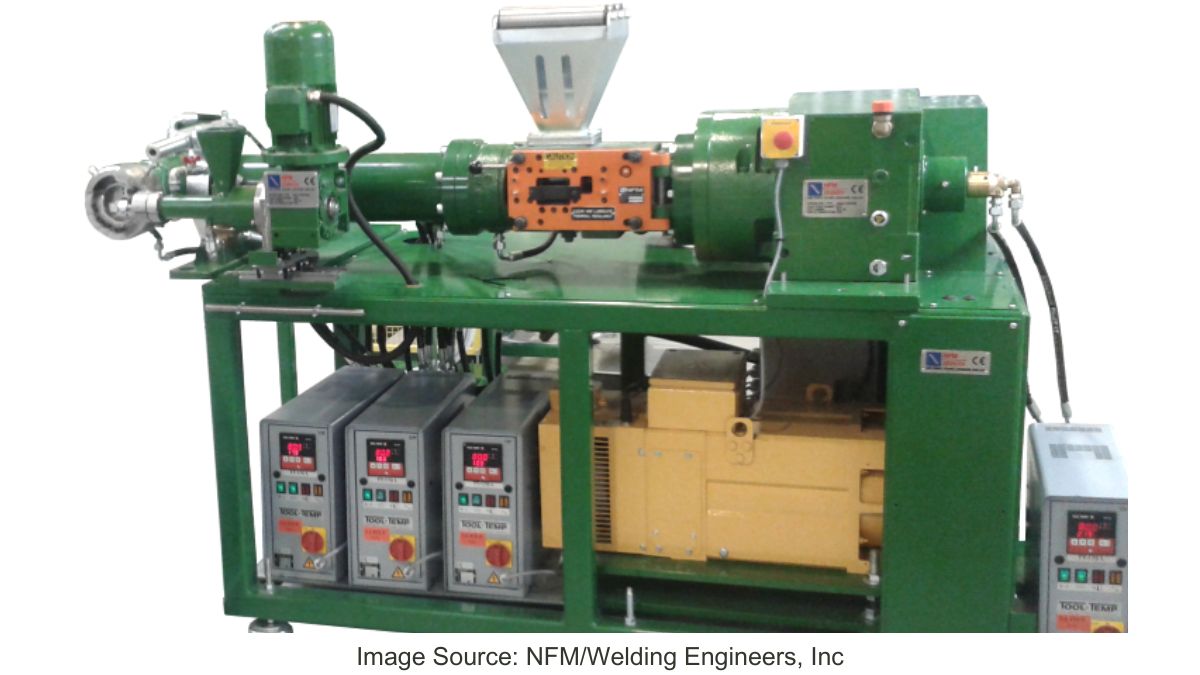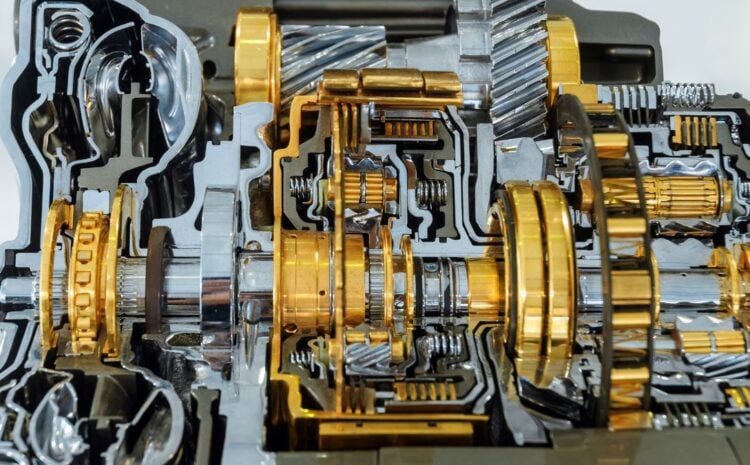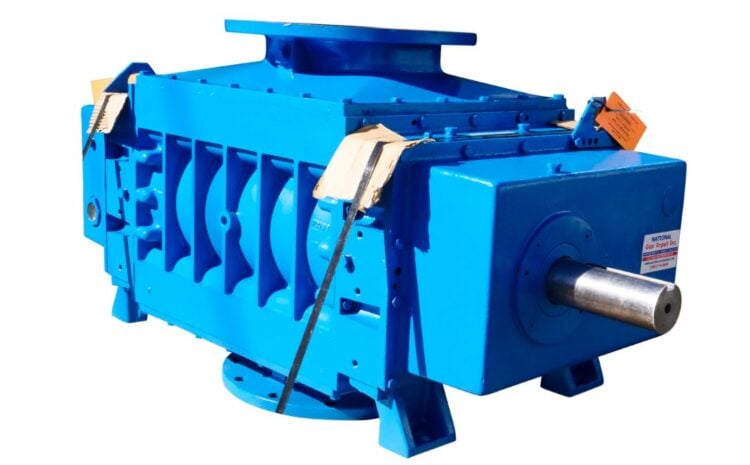The world of extrusion is as complex as it is fascinating. At the heart of this technological marvel sits the co-rotating twin-screw extruder, a piece of equipment that has revolutionized industries. Among the frontrunners leading the charge in this niche is a brand synonymous with precision and reliability: NFM/Welding Engineers.
Understanding the Extrusion Process
Extrusion, at its essence, is both an art and a pivotal engineering process. It involves transforming raw materials into refined end-products, channeling them through a bespoke die or nozzle. This is executed under meticulously optimized temperature, pressure, and velocity conditions. Though prevalent in plastics, rubber, food, and pharmaceutical sectors, the efficacy of the extrusion largely hinges on the machinery, especially the screw components.
Decoding the Role of Screws in Extruders
Screws are the dynamo of extruders. Their pivotal responsibilities encompass transporting, melting, mixing, and facilitating the flow of materials within the barrel. The barrel, a precision-engineered chamber, furnishes specific heating and cooling zones. This meticulous design ensures that screws operate at peak performance, laying the foundation for unparalleled product quality.
Single Vs. Twin-Screw Extruders
The extrusion industry boasts various machinery types, each designed for specific purposes. The single-screw extruder, characterized by its solitary rotating mechanism, is popular due to its straightforward design and economical operation. However, it’s not devoid of limitations. Its challenges are chief among its constrained mixing capabilities, capped output speeds, and inconsistent pressure generation.
On the other side of the spectrum are twin-screw extruders. These machines leverage two intermeshing screws that rotate synchronously, providing enhanced performance and versatility. Further classifying the twin-screw extruders, we find two primary configurations:
- Counter-rotating: In this setup, the screws rotate in opposing directions. This design offers precise material control, especially useful for high viscosity and stability processes.
- Co-rotating: Both screws rotate in the same direction, providing higher shear and mixing capabilities. This configuration is typically favored for applications that benefit from increased mixing efficiency and speed, such as polymer blending and compounding.
While single and twin-screw extruders find their niches in the extrusion industry, their specific functionalities and advantages dictate their suitability for distinct industrial tasks.
Reactive Extrusion: A Paradigm Shift in Polymer Processing
Reactive extrusion marks a transformative advance in the field of polymer processing. At its core, it seamlessly integrates chemical reactions with tried-and-true extrusion methods. But what truly sets it apart?
- Molecular Weight Distribution: Reactive extrusion offers precise control over the molecular weight distribution of polymers. This means achieving a more consistent and predictable product quality, essential for many industrial applications.
- Thermal Endurance: Polymers processed using reactive extrusion exhibit enhanced thermal stability. This equips them to withstand higher temperatures without compromising their structural properties—a game-changer for many industries.
- Structural Robustness: Reactive extrusion fortifies the intrinsic strength of polymers, allowing them to endure external pressures and stresses more effectively.
- Enhanced Adhesiveness: Polymers can be tailored to exhibit superior adhesive properties through controlled chemical reactions, enabling better bonding with other materials.
- Compatibility Boost: Reactive extrusion facilitates the blending of different polymer types, fostering compatibility that was previously challenging or impossible to achieve.
- Diverse Functionalities: Beyond the above attributes, reactive extrusion opens doors to introducing various functional groups to polymers. This means customized polymers that serve specific purposes, from UV resistance to antimicrobial properties.
In essence, reactive extrusion doesn’t merely blend chemical reactions with extrusion; it reshapes the landscape of polymer innovation, offering avenues to create more resilient, adaptable, and tailored to exacting specifications.
Pioneers in Extrusion Mastery
NFM/Welding Engineers is a leading global manufacturer of co-rotating twin-screw extruders and related equipment. It has over 40 years of experience designing, building, servicing, and supporting co-rotating twin-screw extruders for various applications in the rubber and plastics industries.
They also offer a wide range of co-rotating twin-screw extruders under the TEM Series brand name. The TEM Series co-rotating twin-screw extruders are based on the exclusive license from Toshiba Machine Japan, one of the pioneers and innovators in co-rotating twin-screw technology. The TEM Series co-rotating twin-screw extruders are manufactured in Massillon, Ohio, with American-made quality and craftsmanship.
TEM Series: Precision and Adaptability Synthesized
Originating from Massillon, Ohio, the TEM Series spans a wide range of sizes from a compact 26 mm to an impressive 240 mm in diameter. Its distinctive features include a modular design with adaptable screw elements for unparalleled process optimization. The series assures streamlined operations, bolstered by high-torque gearboxes, augmented further by avant-garde control systems.
Comprehensive Extrusion Ecosystem
The prowess of the TEM Series extends from manufacturing thermoplastic elastomers to pioneering biodegradable polymers. But NFM/Welding Engineers’ vision transcends machinery. Their offerings encapsulate an entire extrusion ecosystem, integrating feeders, pelletizers, and advanced downstream tools. Moreover, their portfolio encompasses replacement parts, machinery refurbishments, gearbox repair, and an unmatched global field service network.
Conclusion
As industries evolve rapidly, the demand for adaptable and reliable machinery rises in tandem. NFM/Welding Engineers, with their unwavering commitment to excellence and intricate expertise in rotating extruders, are primed to spearhead this movement.
Twin-screw extruders emerge as the frontrunners in a landscape with intricate raw materials and an insatiable drive for efficiency. At the forefront of this technological advancement is NFM/Welding Engineers, ensuring industries have the essential equipment to thrive irrespective of their size.
Moreover, it’s essential to recognize the pivotal role of maintenance and repair in optimizing the longevity and performance of such intricate machinery. Here, Extruder Gearbox Repair comes into play as your one-stop shop, offering comprehensive repair and remanufacturing solutions for all gearboxes. This addition amplifies the overall offering, ensuring that not only do you get the best machinery with NFM/Welding Engineers but also the assurance of top-notch repair services to uphold their performance.



